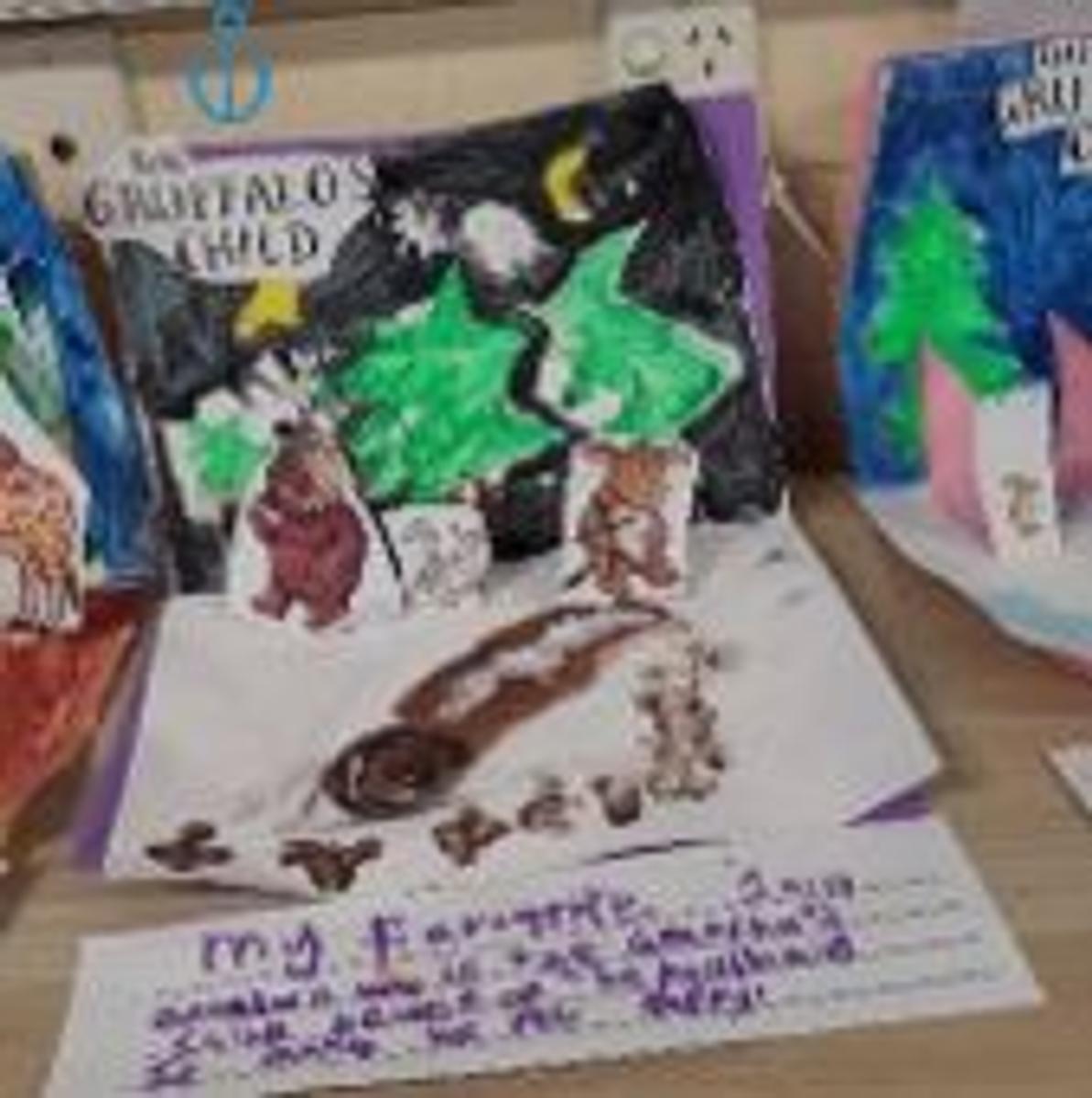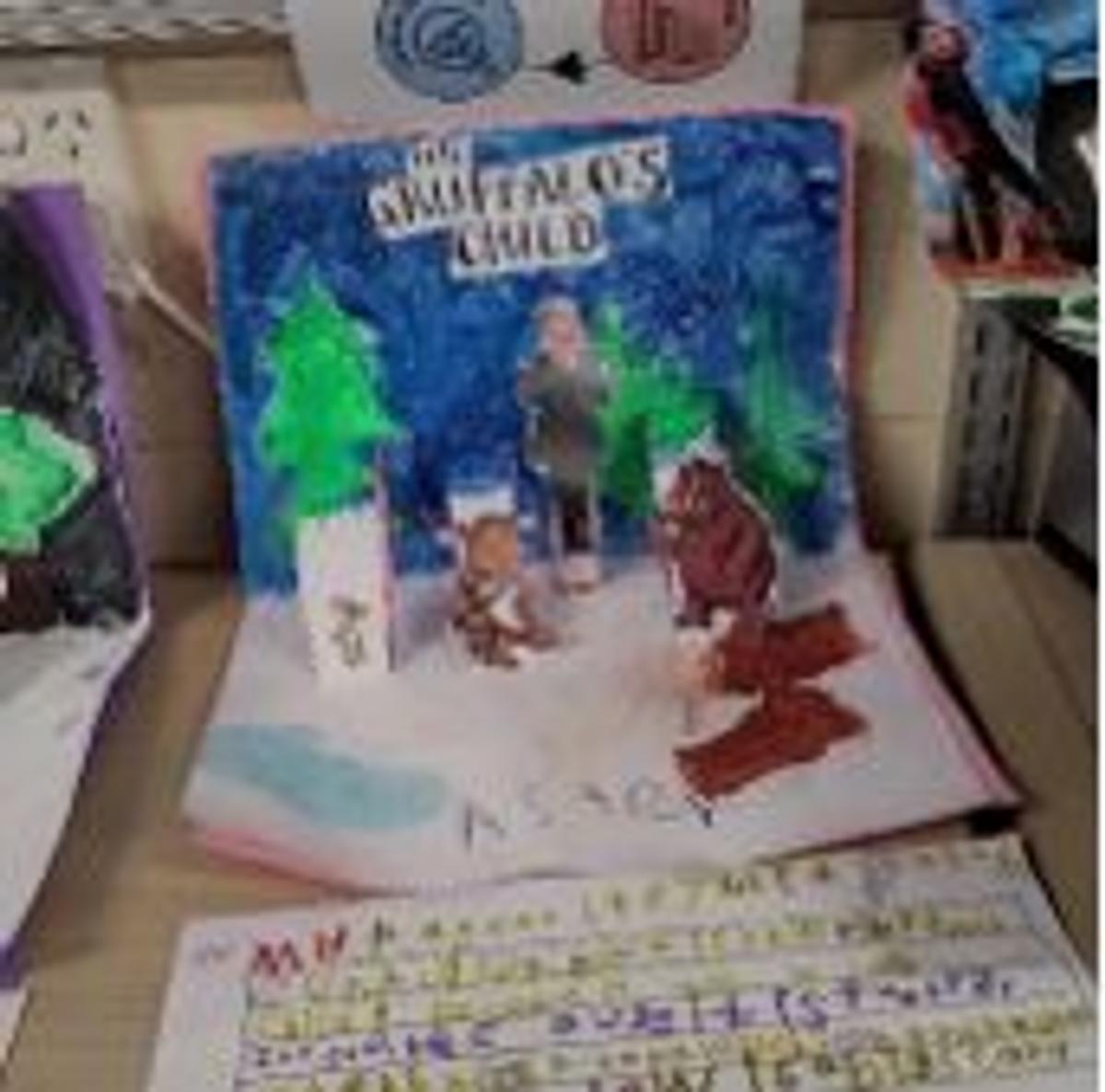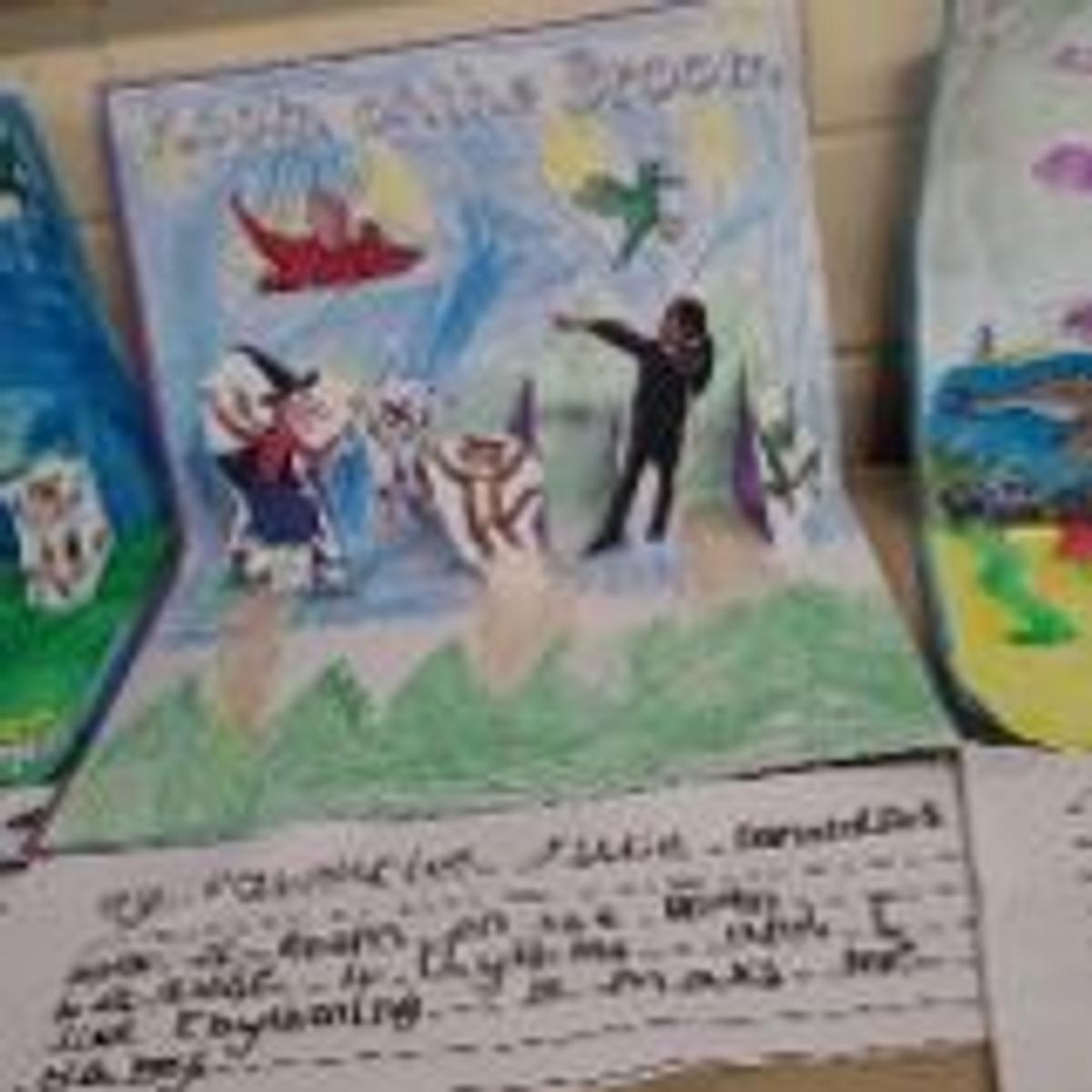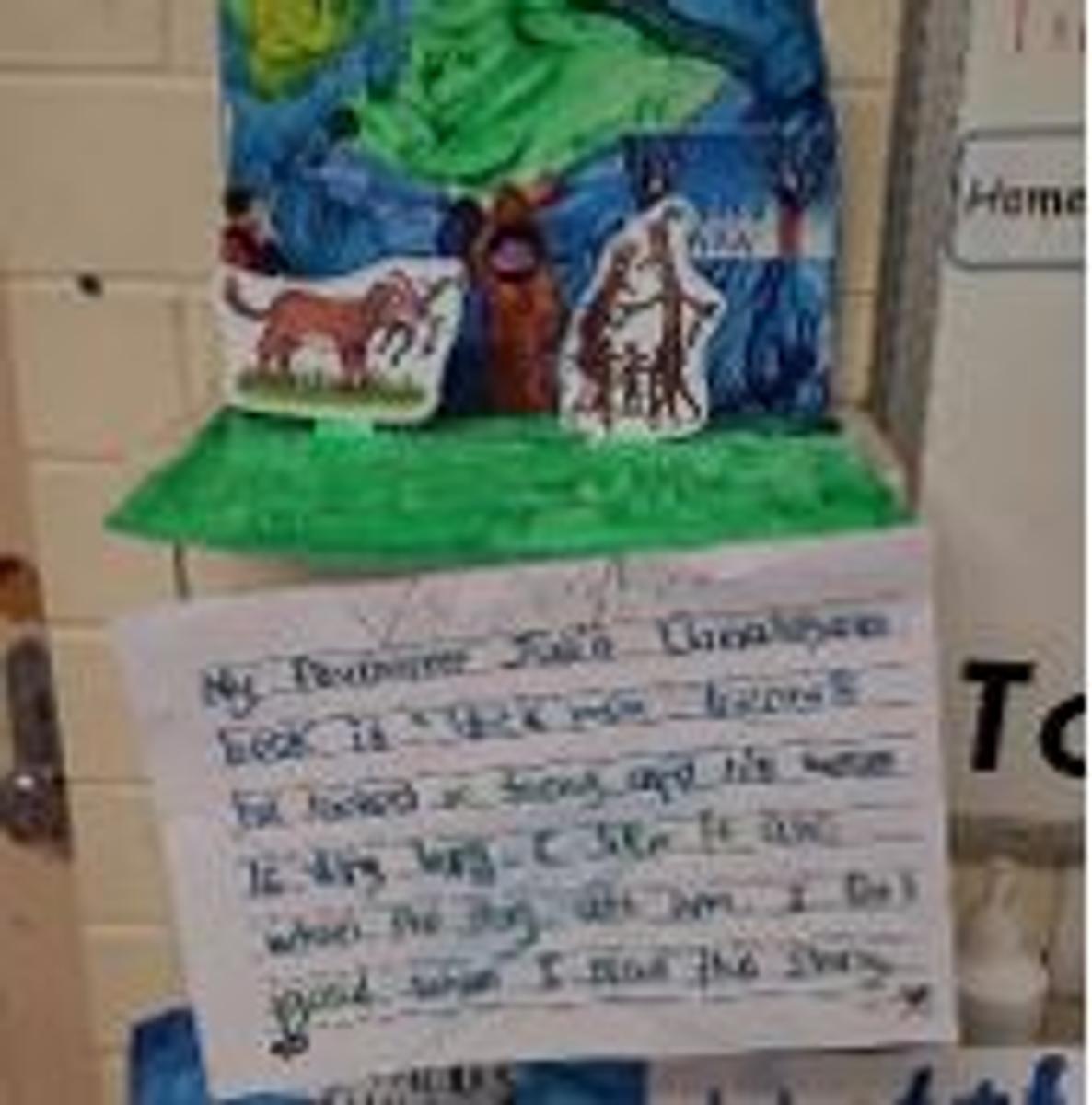Curriculum News
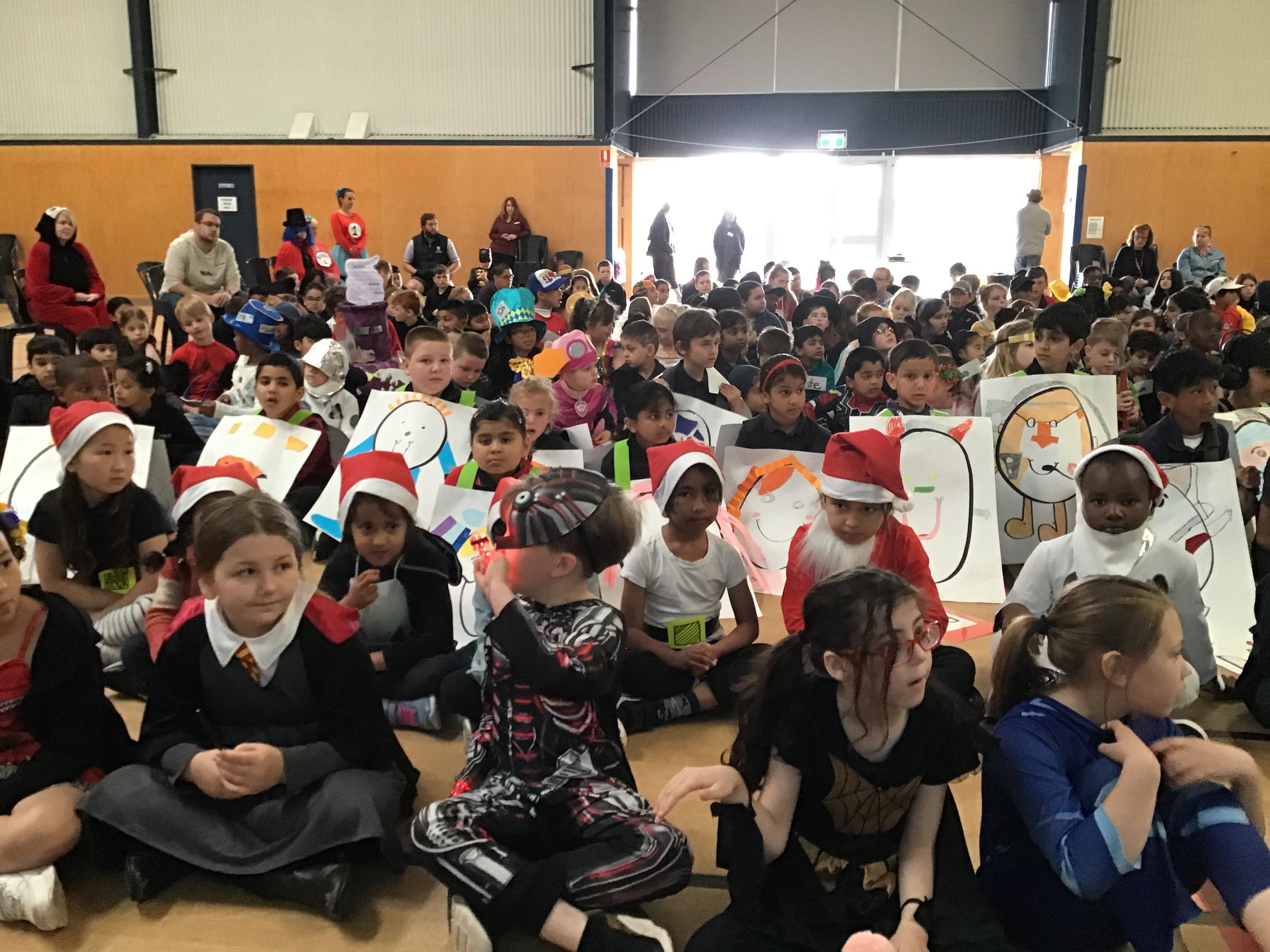
R2 (Early Years IELC)
This term, R2 is exploring various types of weather and seasons and examining how these factors influence the clothing we choose to wear. Students will learn to make connections between weather patterns and appropriate clothing, enhancing their understanding of seasonal changes. This knowledge will be integrated into discussions and persuasive writing activities, enabling students to apply their understanding in written arguments and share their personal opinions. Additionally, students are engaging with daily questions, sharing their answers and providing reasoning to support their responses, fostering critical thinking and oral language skills.
In Mathematics, the focus is on the measurement of mass, height, length, capacity, and time. Students will develop practical skills through hands-on activities and real-life scenarios, enhancing their ability to measure and compare different attributes accurately.
Y1 and G1 (Early Years IELC: reception to year two)
This term, G1 and Y1 will focus on measurement in Mathematics where students will explore concepts such as length, mass, capacity and area using informal units. Through a range of hands-on activities and investigations students will develop a practical understanding of measurement and its applications in everyday life. These activities will encourage active learning and problem-solving allowing students to explore different methods of measurement through real-world scenarios.
In Writing, the focus will be on expositions where students will learn to construct persuasive texts. They will develop their use of language including modal verbs and conjunctions to strengthen their arguments and provide reasons. To make the writing process more engaging, the class will integrate the topic of food into their expositions, discussing opinions such as "What is the best recess food?" This will enhance their writing skills, encourage critical thinking and the articulation of personal opinions.
R3 (mid-year intake receptions)
This term, R3 learners will continue to explore narrative retelling, focusing on classic stories such as ‘Little Red Riding Hood’ and ‘The Gingerbread Man’. The initial part of the term will emphasise sequencing events in the correct order which is crucial for developing comprehension skills. Following this, students will shift their focus to exploring procedures further enhancing their understanding of narrative structure.
In Mathematics, students will further build their understanding of number and place value by counting small collections of objects and employing a variety of counting strategies. Additionally they will explore two-dimensional shapes which will help them recognise and describe geometric properties in their environment.
The Science focus for this term will be ‘Growing Well’ where learners will investigate different types of plants, their various parts and the essential conditions required for their survival. This inquiry-based approach will encourage students to actively engage with their natural surroundings.
Students will use digital technologies, investigating how to effectively use iPads for educational purposes. This aims to enhance their digital literacy skills and integrate technology into their learning experiences.
R1 (reception and year one)
R1 has had a busy and productive start to Term 4, revisiting class expectations and school values while focusing on tools for self-regulation. Interoception activities play a key role in supporting students through this process.
In English, this term, students will be developing their understanding of persuasive writing and reviewing the different text types explored earlier in the year. This term will also emphasise digital technologies as students use the Book Creator app on iPads to construct Information Reports.
In Mathematics, the focus will be on revising and consolidating previously taught concepts with key areas including addition, shape, measurement, statistics and probability. A new area of exploration will involve equal grouping, sharing and fractions. Students will also continue practising counting strategies to enhance their number skills.
During Science, the focus will be on Chemical Sciences. Reception students will explore the topic ‘What’s it made of?’ using their senses to identify and group materials based on their properties. They will understand how material properties influence their uses. Year 1 students will dive into the topic ‘Bend it, Stretch it!’ where they will experiment with twisting, stretching, and bending to physically change the shape of everyday materials.
R5 (reception and year one)
At the end of last term, R5 completed an in-depth study of authors Julia Donaldson and Mem Fox. Students created dioramas representing their favourite Julia Donaldson books and wrote personal responses to connect with the themes and characters. This project not only enhanced their literary analysis skills but also encouraged creativity and self-expression. Below are some examples of the finished dioramas:
They will also revise and compare different text types explored throughout the remaining year, fostering a comprehensive understanding of various writing styles. Additionally, students will integrate their technology skills by using the Book Creator app on iPads to construct an Information Report, combining digital literacy with their written work.
In Mathematics, students will engage in revision and consolidation of topics previously covered, with a particular focus on subtraction, addition, 2D and 3D shapes, length, capacity, mass, time, chance, and data. These topics will be revisited through hands-on activities and practical applications to strengthen students' foundational skills.
In Science, the focus will be on Chemical Sciences, specifically the study of natural and processed materials. Reception students will investigate what things in their environment are made of and how different materials behave. Year 1 students will explore the topic ‘Bend it, Stretch it!’ where they will experiment with how twisting, stretching, and bending can physically change the shape of everyday materials.
O2 (Special Options: reception to year 2)
The class will focus on procedural writing in English, engaging students through a variety of hands-on activities, including craft projects and cooking sessions. Throughout this unit, students will explore the text structure of procedural writing, which includes essential elements such as titles, materials, and step-by-step instructions. They will also learn about relevant language features, such as the use of verbs and sequencing words, which help to guide the reader through the process.
In Mathematics this term students will be learning about statistics and probability. Students will engage in data collection activities, learning how to gather information through surveys and hands-on projects. They will discover how to organise and represent this data visually using bar graphs and pictographs. Through interactive games, students will also explore the concept of probability, make predictions to understand basic chance.
B2 (year two)
The focus for English this term will be on writing information reports about insects or minibeasts, where students will learn to present factual information clearly and effectively. Students will also enhance their understanding of the purpose of different text types, determining whether a text is designed to persuade, entertain, or inform, and applying this knowledge to their own writing.
In Science, the focus will be on physical sciences, particularly the exploration of sound. Students will investigate various actions that produce sound and learn how sound energy causes objects to vibrate. They will build a vocabulary for describing sound and experiment with different ways to produce sound using familiar objects and actions. These activities will deepen their understanding of the properties of sound and how it behaves in everyday contexts.
Mathematics this term will centre on Algebra and Number. Students will recognise, describe, and create additive patterns, reinforcing their understanding of numerical relationships. They will also focus on recalling and demonstrating proficiency with addition facts up to 20 and multiplication facts for twos. These skills will be extended to develop division facts through doubling and halving.
Additionally, students will use mathematical modelling to solve problems involving addition including money transactions. They will also multiply and divide one-digit numbers using strategies such as repeated addition, equal grouping, arrays, and partitioning. The term will further build on their ability to add and subtract one and two digit numbers, solve problems using number sentences and apply part/whole reasoning alongside various calculation strategies.
G2 and G3 (year three and four)
Towards the end of term 3, G2 and G3 were actively engaged in hands-on science experiments including simulating erupting volcanoes, crafting colourful lava lamps and creating 'magic milk' by observing chemical reactions between milk and dishwashing liquid. These activities have provided students with a dynamic and interactive way to explore scientific concepts, fostering curiosity and encouraging critical thinking.
In Science this term, the focus will be on investigating heat energy and the effects of different forces. Through a combination of experiments and real-world examples, students will explore how heat is transferred and how forces impact movement and change in the physical world.
For English, students are excited to explore Haiku poetry, learning how to express ideas and emotions through concise, structured verse. By examining the elements of Haiku, students will develop an appreciation for the simplicity and power of poetic language while also honing their creative writing skills.
In Mathematics, the focus will shift to fractions where students will deepen their understanding of part-whole relationships. In addition, the exploration of financial mathematics will equip students with essential life skills, such as managing money and creating simple budgets, to help them navigate real-world financial scenarios with confidence.
G4 (year three and six, Special Options)
Term 4 will be a jam-packed term of enriching learning experiences. In Mathematics, the focus will be on Measurement and Geometry. Students will learn to give and follow directions to move people and objects to different locations within a space, reinforcing their understanding of spatial awareness. Additionally, students will develop their time-telling skills by learning to read time to the half hour, further building their mathematical proficiency.
In Health, students will explore the importance of seeking, giving, or denying permission respectfully when sharing possessions or personal space. They will identify, demonstrate, and apply protective behaviours, name body parts, and rehearse help-seeking strategies that contribute to their safety. This learning aims to empower students with the knowledge and skills needed to navigate social interactions confidently and responsibly.
In English, students will learn to write and follow procedures. Cooking and gardening activities will be incorporated into these lessons, providing practical applications for their writing skills while promoting an understanding of nutrition and sustainability.
The term has already been eventful, with students enthusiastically participating in a variety of learning activities. G4 students attended a theatre production titled ‘Moss Piglet’, which focused on Tardigrades, microscopic organisms known for their resilience over 600 million years.
Y3 and Y5 (year three to six IELC)
Last term, the Y3 and Y5 students embarked on a culinary adventure, exploring the world's flavours through authentic recipes. These real-life activities and PowerPoint presentations allowed them to develop their cooking skills while learning about different cultures and cuisines. The students also honed their writing skills. Through this fun cooking activity, they learned to craft clear instructions, use precise language, and understand the importance of sequencing. It was a perfect blend of practical skills and writing development!
The Clovelly Science Week was a thrilling adventure into the world of science, culminating in the explosive volcano eruption experiment! Y3 and Y5 students had a blast learning about chemical reactions as they created miniature volcanoes, igniting their curiosity and deepening their understanding of the natural world.
Y6 and Y7 (year five and six)
This term Y6 and Y7 students have a busy schedule filled with both classroom learning and numerous extracurricular activities. The classes have just participated in a two-night camp at Monarto Zoo where students eagerly engaged in various educational activities and gained insight into the operations of the zoo. This experience enhanced their understanding of wildlife conservation and animal care. We appreciated the support of our volunteers, Steve and Tanja and thank them for their attendance at the camp. We also thank Ms Charmain, Mr Chris and Mr Mac (Aaron) for willingly making themselves available to attend the camp.
Sports Day is a significant event in the school calendar that fosters teamwork and school spirit. Following Sports Day, the focus will be to prepare for the Graduation of Year 6 students, marking an important milestone in their educational journey.
While the term will be busy, it is also expected to be filled with enjoyment and memorable experiences for all involved.
Specialist Subjects
HASS
In R1, R5, R3, R2, O2, G1 and Y1, students will continue their geography learning journey by focusing on the features of places and how they change over time, exploring natural, managed, and constructed features through maps, pictures and real-life investigations.
In G4, B2 and Y5, students will deepen their understanding of how Aboriginal people are connected to place, exploring the importance of this connection before examining how people globally connect to different places through food consumption and the geographical maps.
In G2, G3, and Y3 students will learn about waste management, comparing waste production in different countries while discussing sustainable living practices including how Aboriginal peoples have lived sustainably on the land for thousands of years.
In Y6 and Y7 students will focus on Asia, exploring its geographical diversity and comparing one Asian country with Australia to investigate social similarities and differences, while also examining the deep connections between Asia and Australia through trade, migration and education.
Performing Arts
In term 3, the Year 3-6 students focused on using digital technologies, specifically GarageBand on the iPads to explore key musical elements such as rhythm, melody and composition. They engaged with the platform's powerful features, working towards creating backing tracks to accompany future performances or sing-alongs.
The Reception to Year 3 students concentrated on rhythm, beat and tempo using both melodic and untuned percussion instruments. They also had the opportunity to experiment with improvisation, utilizing the wooden xylophones to enhance their understanding of musical creativity. This term the students are busy preparing for the end of year concert. Stay tuned for a program filled with musical magic.
Indonesian
In Indonesian, Reception to Year 2 students are exploring activities that children in Indonesia engage in during their spare time. As part of this learning, they are being introduced to the angklung, a traditional Indonesian instrument and will also participate in various games commonly played by Indonesian children. This hands-on approach allows students to immerse themselves in aspects of Indonesian culture while developing their language skills.
Year 3 and 4 students are focusing on learning the Indonesian names for parts of the body through a humorous story. They will use this newly acquired vocabulary to create their own stories enhancing both their creativity and language comprehension.
Year 5 and 6 students are delving into Indonesian cuisine by learning how to make a traditional Indonesian snack. They will familiarise themselves with the names of ingredients, necessary equipment and the methods used in preparation. This knowledge will be applied as they follow a recipe and eventually prepare the snack themselves, deepening their cultural and linguistic understanding.
P.E Reception to Year 2
This term, students will focus on working cooperatively in group activities and with partners as they practise new movement skills such as two-handed strikes. In preparation for Sports Day, students will also practise tabloid activities with an emphasis on cooperation and participation leading up to the event.
Years 3 and 4
Students will practise movement skills and strategies that create scoring opportunities in striking and fielding games. In preparation for Sports Day, students will also practise tabloid activities with an emphasis on cooperation and participation leading up to the event.
Year 5 and 6.
The year 5 and 6 students will engage in striking and fielding games such as cricket. They will develop their striking and throwing skills and learn to adapt these skills to a variety of new games and activities. In preparation for Sports Day, students will also practise tabloid activities with an emphasis on cooperation and participation leading up to the event.
Health
This term in Health, the focus is on ‘safety’. Reception to Year 2 classes will concentrate on understanding and following safety signs, as well as learning about sun, road and water safety.
Year 3-4 students will focus on recognising risks in various situations such as around water, roads and online. Students will explore how to make informed choices to reduce risks and keep themselves safe while also learning how to assist others in staying safe.
Year 5-6 students will focus on cyber safety, particularly viewing online content through a critical lens. Additionally, students will explore the concept of positive body image, emphasising the importance of valuing the body's unique functions and strengths, rather than focusing solely on external appearance.
